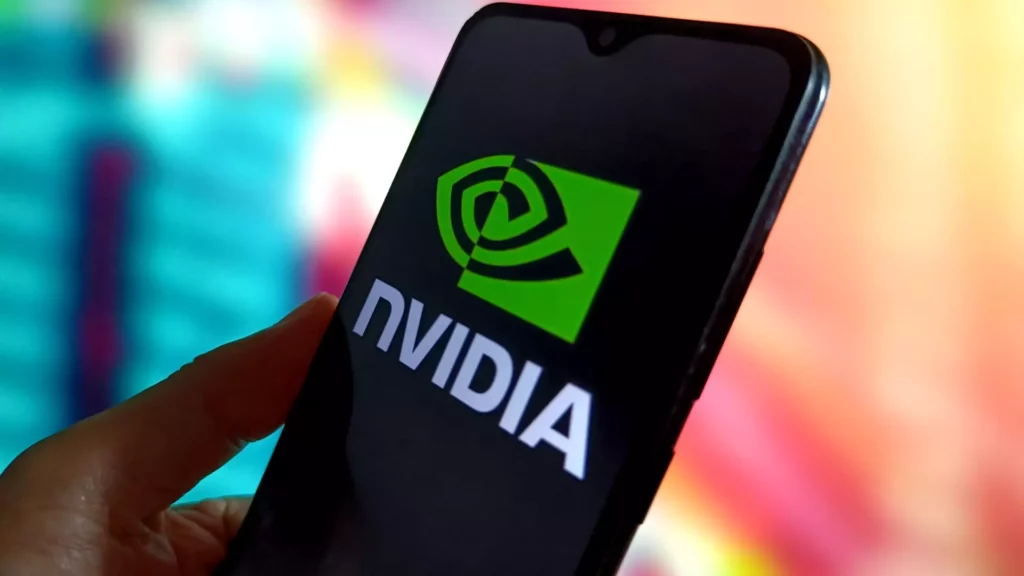It’s undeniable that we are witnessing a breathtakingly charged moment in the stock market, particularly with the incredible rush toward Nvidia, even in the face of adversity. Retail investors have, once again, defied the traditional institutions by buying large quantities of Nvidia shares while institutional investors hastily retreated. On a day marked by a staggering 17% drop—the most significant loss for Nvidia since March 2020—they plowed in over $562 million in shares. This fervid support from everyday traders paints a fascinating picture of the modern investing landscape, one where individuals feel empowered to chart their own course against the tide of institutional caution.
The sheer audacity of retail investors is both exhilarating and perplexing. On paper, it’s an act of rebellion against the titans of Wall Street, who often dictate market trends with their billions. However, it is also part of a growing trend that should not be underestimated. While conventional wisdom may declare caution when facing market turmoil, retail investors seem more willing to embrace risk. The enthusiasm might stem from a blend of technological accessibility and a shift in market sentiment that champions individual agency—an ethos seldom championed by the more traditional financial elite.
The catalyst for Nvidia’s plunge didn’t wholly originate from within the company’s sphere. The rise of DeepSeek, a Chinese startup making waves with its AI model that allegedly outperformed Western competitors, is a glaring reminder of the competitive landscape in technology and innovation. Dubbed a “Sputnik moment,” this unforeseen challenge raises profound questions about America’s leadership in AI and technology. With the U.S. government pushing for escalated investments in AI infrastructure, can it still confidently maintain its edge when a startup from China can mimic that success at a fraction of the cost?
What’s truly eye-opening is how Nvidia’s leadership has long thrived in an environment often dominated by innovation and capital. The acknowledgment from Nvidia that DeepSeek’s advancements are noteworthy is both refreshing and alarming. It exemplifies the open-mindedness needed in executive leadership to acknowledge competition. However, it raises profound questions about the direction the U.S. should take to foster innovation in a global marketplace that is no longer forgiving to complacency.
Then there’s the role of social media—especially platforms like Reddit—where Twitter-style investing culture has surged to the forefront. The WallStreetBets forum, echoing with excitement and fervor, became a digital war room for retail investors who rallied around Nvidia, highlighting a remarkable divergence from institutional strategies. As stocks plummeted, mentions of Nvidia skyrocketed on social platforms; this digital solidarity showcases an emerging form of community-based investing.
While retail investors can’t move the stock price of Nvidia like they could with meme stocks such as GameStop or AMC, the resonance of community engagement remains powerful. The excitement manifests as users echo sentiments like “in Huang we trust,” referring to CEO Jensen Huang, illustrating just how personal and impassioned these investments have become. It’s a blend of activism, personal connection to the brand, and a shared vision of potential success that is rarely seen in traditional investing circles.
We must consider how this conflict between retail investors and institutional players will reshape the financial landscape. The old model of heavyweight firms charging through capital markets might not remain unchallenged for much longer. The internet’s democratizing effect allows everyday investors to coalesce around a common cause, propelling them into an era where their influence cannot be underestimated. These forces test the durability of the financial order, revealing a possible paradigm shift toward a new age of investing.
Unlike in eras past, when Wall Street held a monolithic grip on investment dynamics, today’s players in the market are denouncing traditional norms. Retail investors, buoyed by a digital community, seem poised to redefine boundaries in investment culture. Their willingness to bet boldly, even when faced with grim market realities, may forever alter the balance of power and influence in financial markets.
This return to an almost grassroots form of investing may herald a renaissance of sorts for those few bold enough to face down seasons of doubt and potential defeat. Even with Nvidia scraping the skids of market turmoil, there lies an extraordinary resilience echoing from millions of confident retail investors ready to assert their resolve against Wall Street’s status quo. This movement toward individual agency promises an intriguing future where the power of the many is pitted against the authority of the few, and perhaps, just perhaps, it is time for Wall Street to reassess its influence.

